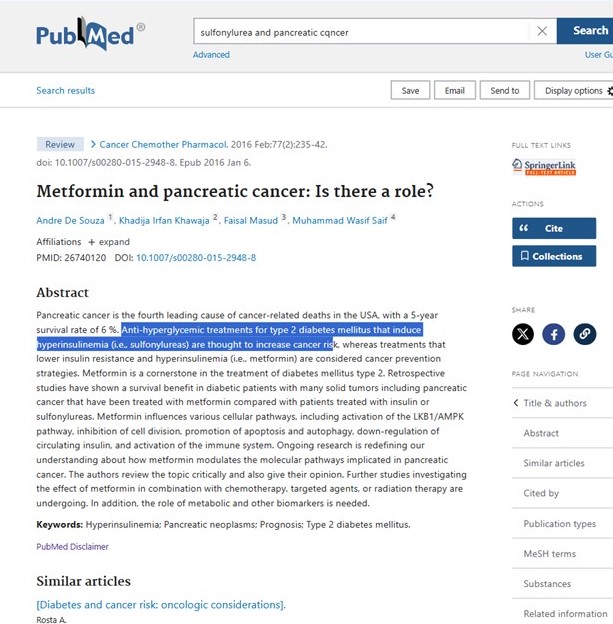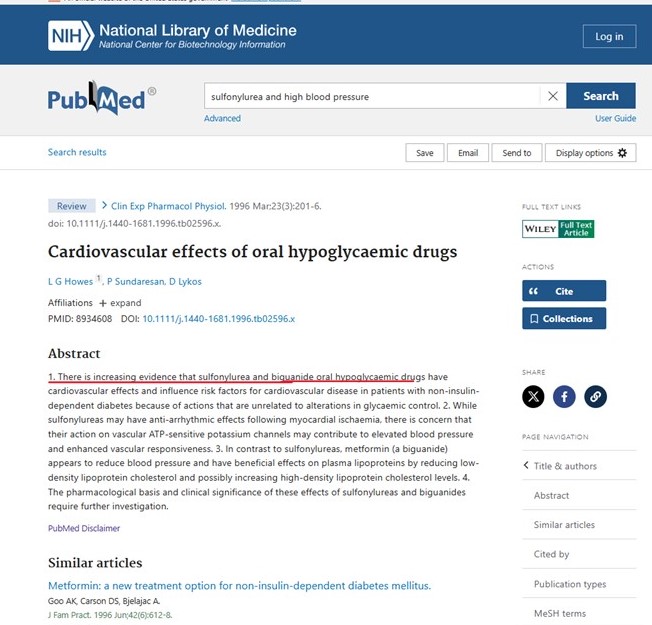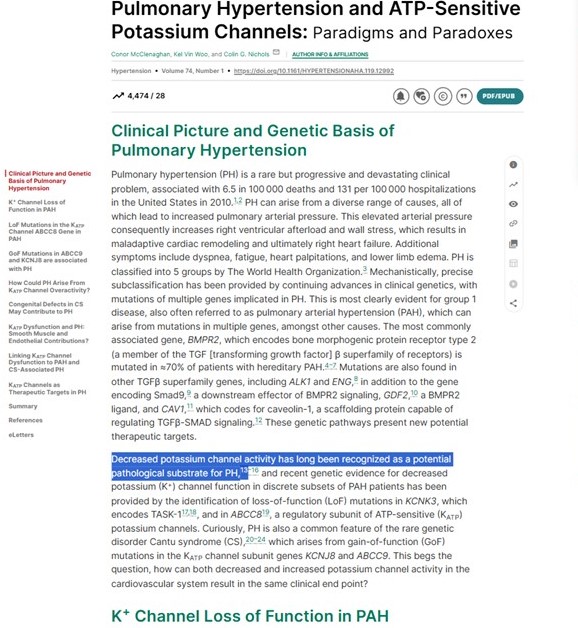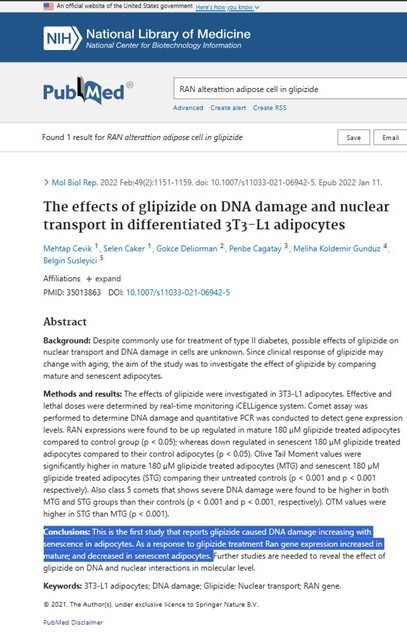"Uncover the truth behind the groundbreaking discovery of the causes of the world's biggest problems. 'The Root Causes' will change how you view the world!"
Warning: The Benefits of Sulfonylureas Like Glipizide for Lowering Blood Sugar Are Exaggerated, While the Risks Are Downplayed – What You Need to Know Before It's Too Late
Glipizide is an oral medication commonly used in the treatment of Type 2 diabetes to help control high blood sugar levels. As a member of the sulfonylurea class of drugs, glipizide works by stimulating the pancreas to release more insulin, thus increasing insulin availability to cells for better glucose uptake. This helps manage insulin resistance, a hallmark of Type 2 diabetes, where the body’s cells become less responsive to insulin. While effective in lowering blood sugar, it’s important for patients to understand the potential side effects of glipizide, such as weight gain and the increased risk of hypoglycemia (low blood sugar). Long-term use of glipizide may also raise concerns about contributing to insulin resistance over time. Proper diabetes management, including lifestyle changes like diet and exercise, remains essential for improving insulin sensitivity and overall health.
DISEASES
Glenn Rosaroso Vale,BSMT, MS(IT), MBA
1/14/202512 min read


Introduction: What Are Sulfonylureas and Glipizide?
Sulfonylureas are a class of drugs commonly prescribed to manage blood sugar levels in individuals with type 2 diabetes. These medications work by stimulating the pancreas to release more insulin, aiming to reduce high blood sugar. Glipizide is one of the most widely used drugs in this class, but it's important to understand both its potential benefits and the risks that are often minimized or overlooked. While it has been effective in lowering glucose, the long-term consequences, such as an increased risk of cancer, insulin resistance, and even pulmonary hypertension, can have serious implications (McClenaghan et al., 2019; Howes et al., 1996).
Glipizide: How It Works and Its Impact on the Body
Glipizide works by binding to and inhibiting ATP-sensitive potassium (K_ATP) channels located on pancreatic beta cells. This inhibition causes the channels to close, leading to cell depolarization. The resulting change in the cell's electrical potential opens voltage-gated calcium channels, allowing calcium to flow into the cells. This influx of calcium triggers the release of insulin (McClenaghan et al., 2019).
This mechanism of action plays a vital role in controlling blood sugar levels. However, it’s important to understand the cellular impacts beyond glucose control. The persistent insulin secretion stimulated by glipizide can lead to several long-term consequences, including exacerbating insulin resistance and affecting the cells that are most sensitive to K_ATP channels (Howes et al., 1996).
The Cells Sensitive to K_ATP Channels: What You Need to Know
K_ATP channels are not limited to the pancreas; they are also present in a variety of other cells throughout the body. These include:
Pancreatic Beta Cells: Essential for insulin release.
Cardiac Myocytes (Heart Cells): Regulate heart rhythm.
Neurons: Modulate neuronal excitability.
Skeletal Muscle Cells: Contribute to muscle contraction.
Adipocytes (Fat Cells): Play a role in regulating fat storage.
Each of these cell types responds to changes in the energy status of the body, as indicated by fluctuations in ATP levels. When K_ATP channels are constantly influenced by glipizide, these cells may experience disruptions in their normal functions, particularly in beta cells and muscle tissue. This can lead to consequences like impaired insulin signaling and increasing insulin resistance, worsening the underlying problem of type 2 diabetes (McClenaghan et al., 2019).
Why Glipizide May Contribute to Insulin Resistance
Over time, the continuous stimulation of insulin secretion by glipizide can increase circulating insulin levels. High insulin levels can stress insulin-sensitive tissues such as muscle, liver, and adipose tissue, leading them to become less responsive to insulin. This phenomenon is known as insulin resistance, and it is a hallmark of type 2 diabetes. Additionally, excessive calcium influx caused by glipizide's action on K_ATP channels may degrade IRS-1, a critical protein involved in the insulin signaling pathway. The loss of IRS-1 functionality impairs insulin's ability to properly regulate glucose uptake in tissues, further worsening insulin resistance (Howes et al., 1996).
The Risk of Pancreatic Cancer and Other Potential Concerns
There have been concerns regarding the long-term use of sulfonylureas, including glipizide, and their potential to increase the risk of certain cancers. One of the most notable concerns is pancreatic cancer. While the exact relationship is still debated, the hypothesis is that the chronic stimulation of insulin release caused by glipizide could promote the growth of cancer cells, especially in the pancreas (De Souza et al., 2016). Another risk that has emerged in some studies is the potential association between sulfonylureas and an increased likelihood of bladder cancer. The mechanism behind this is not fully understood, but it’s hypothesized that insulin, as a growth factor, could promote cell proliferation in certain tissues, including cancerous cells (De Souza et al., 2016).
Pulmonary Hypertension (PAH) and Glipizide Use
Emerging research has also indicated that drugs like glipizide could contribute to the development of pulmonary arterial hypertension (PAH) or exacerbate the condition in patients with underlying heart issues. The effect of glipizide on K_ATP channels in smooth muscle cells might impact vascular tone regulation, potentially leading to changes in blood pressure and circulation. This could strain the heart and the pulmonary arteries, increasing the risk of PAH over time (McClenaghan et al., 2019).
The Hidden Costs: Why the Benefits of Glipizide May Be Overstated
The main argument in favor of glipizide is its ability to lower blood sugar levels effectively. However, this benefit needs to be weighed against the long-term risks. While it works quickly to reduce glucose, it doesn't address the root causes of insulin resistance, which are often linked to lifestyle factors such as diet and exercise. The use of glipizide might be a temporary solution, but it fails to resolve the deeper metabolic issues that lead to diabetes in the first place. Additionally, the potential for side effects like cancer, insulin resistance, and even PAH is often downplayed by the pharmaceutical industry, which focuses on the short-term benefits rather than the long-term risks (Howes et al., 1996; McClenaghan et al., 2019).
Conclusion: What You Need to Know Before It's Too Late
While glipizide and other sulfonylureas can effectively lower blood sugar in the short term, the risks associated with their long-term use are significant and often overlooked. From insulin resistance to increased cancer risk, the potential for serious health issues down the line cannot be ignored. It's crucial for patients and healthcare providers to consider these risks carefully and explore alternative, more sustainable options for managing type 2 diabetes. Lifestyle changes, including diet, exercise, and weight management, remain some of the most effective ways to address the root causes of insulin resistance and improve overall health.
References
De Souza, A., Khawaja, K. I., Masud, F., & Saif, M. W. (2016). Metformin and pancreatic cancer: Is there a role? Cancer Chemotherapy and Pharmacology, 77(2), 235-242. https://doi.org/10.1007/s00280-015-2948-8
Howes, L. G., Sundaresan, P., & Lykos, D. (1996). Cardiovascular effects of oral hypoglycaemic drugs. Clinical and Experimental Pharmacology and Physiology, 23(3), 201-206. https://doi.org/10.1111/j.1440-1681.1996.tb02596.x
McClenaghan, C., Woo, K. V., & Nichols, C. G. (2019). Pulmonary hypertension and ATP-sensitive potassium channels. Hypertension, 74(1), 14-22. https://doi.org/10.1161/HYPERTENSIONAHA.119.12992
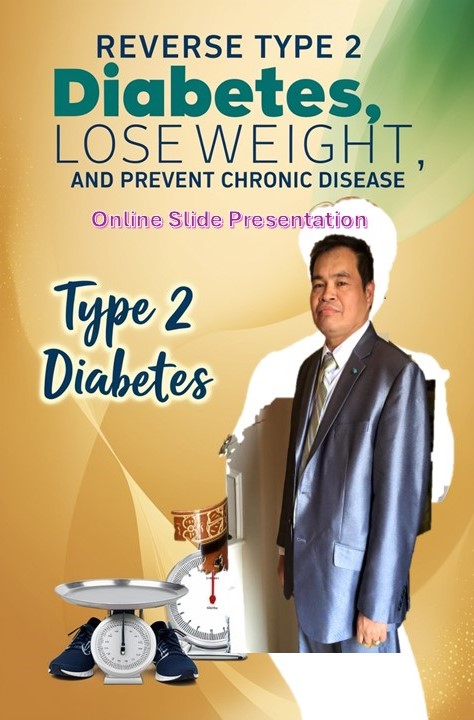

How to reverse type 2 diabetes, lose weight, prevent chronic infection such as high blood pressure, heart attack including cancer presentation---START TODAY!


Reversing type 2 diabetes, losing weight, and preventing chronic conditions like high blood pressure, heart disease, and cancer can be achieved naturally by adopting a holistic lifestyle focused on cellular health. By avoiding processed foods and limiting carbohydrate intake to a defined amount, while completely eliminating seed oils, you can improve insulin sensitivity and promote healthy cell membrane function. Proper electrolyte balance is essential to prevent the initial cell membrane depolarization, which triggers harmful ion imbalances responsible for chronic diseases. Focus on stress reduction, proper hydration, and quality sleep to enhance your body’s ability to prevent oxidative stress, inflammation, and free radical damage. By embracing these natural approaches, you can significantly reduce your risk of chronic conditions and support overall wellness.
Are you tired of battling type 2 diabetes, struggling with weight loss, or worried about the risks of chronic diseases like high blood pressure, heart attack, and even cancer? It's time to take control of your health with proven, science-backed strategies that can help you not only reverse type 2 diabetes, but also shed excess weight and protect yourself from life-threatening conditions.
Imagine living a life free from daily medication, feeling energized, and knowing you're preventing dangerous diseases that impact millions worldwide. Thousands of individuals have already transformed their lives with our step-by-step guide, and now it's your turn. This isn’t just another fad diet or quick fix—it’s a holistic approach to long-term health and wellness.
What you’ll discover:
The truth about reversing type 2 diabetes naturally
Simple, effective strategies for losing weight without starving yourself
Key dietary changes that help prevent chronic diseases like heart attack, high blood pressure, and even cancer
Tips to boost your energy levels and improve your overall well-being
You deserve a healthy life, free from the worries of chronic illnesses. Take the first step today and join thousands of others who’ve already seen results!
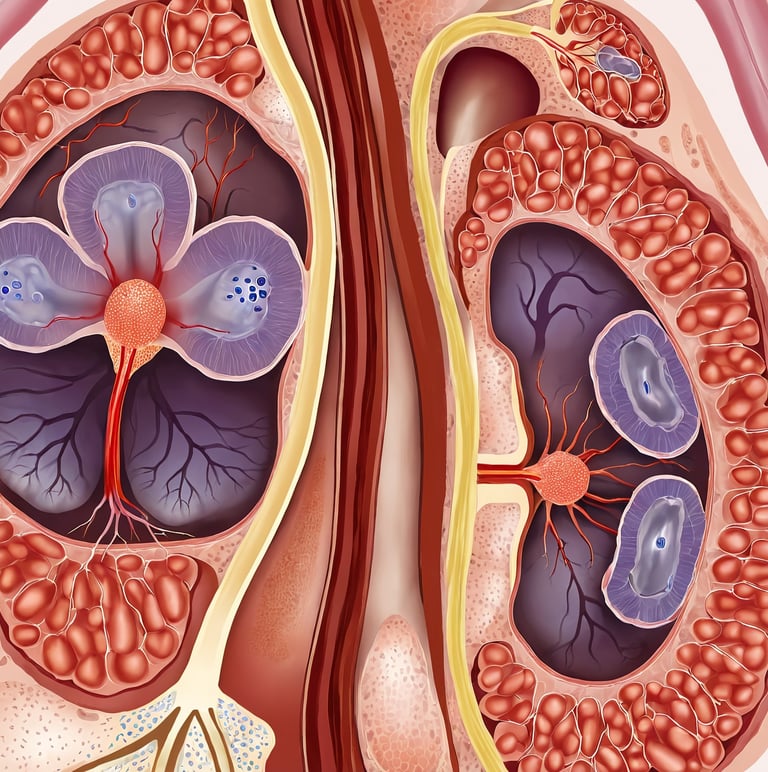

This presentation is for you if
§Diabetic or prediabetic
§High blood pressure
§Any Insulin Resistance Complications
§CVD
§Alzheimer’s
§Cancer
§For young healthy individual who cares to preserve a good quality of life 10, 20, 30 years from now




2. Disclaimer
•Glenn Rosaroso Vale is not a doctor, but I have worked in the medical field for over 35 years in the laboratory. The information shared in this webinar is for informational purposes only and should not be taken as professional medical advice or recommendations. Please consult your healthcare provider before making any changes to your lifestyle or medical regimen based on this information."
•"The presenter and RootCausePrevention.com take no responsibility for any actions you may take based on the content presented in this webinar or the website. The information provided is meant to educate and inspire, not to diagnose, treat, or cure any medical conditions. Please always seek the advice of your physician or healthcare provider before acting on any information presented here."




Empower Yourself to Lead The Right Path To Reversal


3. Meet The presenter
Welcome You All in This Presentation
·My name is Glenn Rosaroso Vale, BSMT( MS(IT), MBA
·I have been in the medical field for more than 35 years
·Personal health challenges passionately motivate me to share with the world
·The importance of reversing Type 2 diabetes and preventing chronic diseases like high blood pressure, heart attacks, and cancer is crucial for having a good quality of life in the future.


4. What is Type 2 Diabetes? A Progressive Disease
That can end up in an ESRD
Many Chronic Complications
It progresses with the traditional medication and it worsens over time without prorper intervention.
This can be reverse through natural way
Diabetes starts with cell membrane depolarization
Preventing cell depolarization is our first defense through natural way
Then tightly regulate the ions causing to trigger different enzymatic reactions that activate different down stream pathological pathways
For example: An enzyme thromboxane synthase is upregulated in elevation of this ions producing a clot in myocardial infarction. Other enzymes are also upregulated in an elevation of these ions producing prostaglandin (PGH2), leukotienes, and other inflammatory cytokines molecules from omega 6 consumption
We must tightly regulate these ions in a natural way
If these ions are not regulated, it can cause ion overload, leading to mitochondrial dysfunction, which results in fatigue and weakness. This can eventually contribute to high blood pressure, heart attack, diabetes, and even cancer.
Do not wait, act now before it's too late and stop the progression of the disease
LIPID BILAYER
CELL MEMBRANE
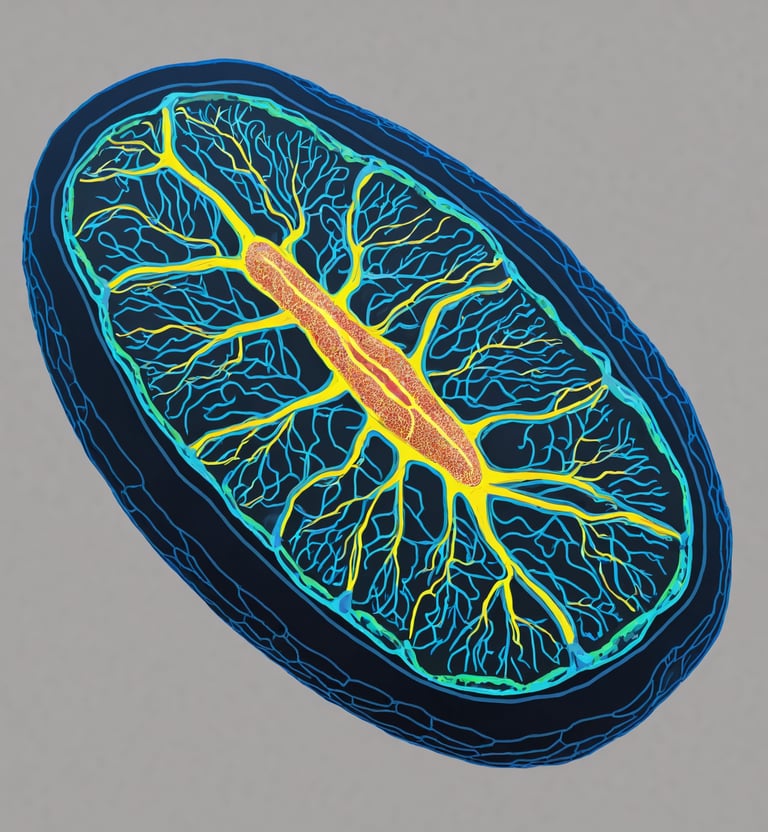

MITOCHONDRIA
5. Traditional Medications: Building a Cycle of Progression
The cycle that medications create: symptom management but not disease reversal. For example, treating the sugar, treating insulin, and treating insulin resistance. All of this addresses the symptoms, not the root cause.
These are all like a temporary band-aid or patches on your wound
The long-term effects and dependency on these medications are chronic diseases such as high blood pressure, worsening type 2 diabetes, heart attack, Alzheimer’s, and even cancer.
Diabetes will never reverse, it will worsen
By empowering you with the knowledge, you cab decide the right path to reversal
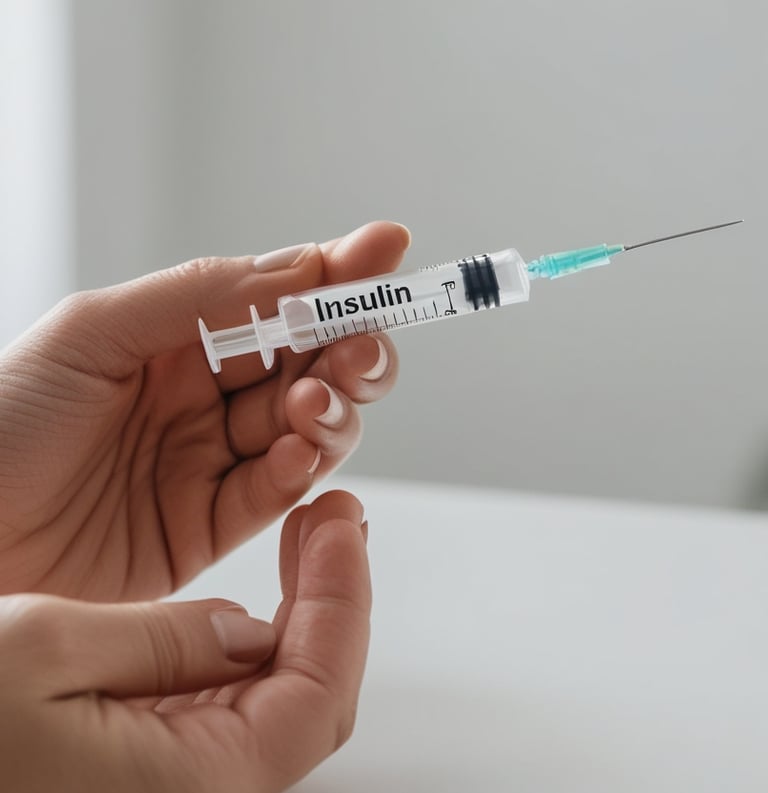

6. The Yo-Yo Effect of Traditional Approaches
Conventional weight loss methods and diets lead to temporary results, followed by inevitable weight regain.
This creates a cycle of frustration and failure.


7. Why Current Diets Won’t Work
Popular diets (e.g., low-fat, low-carb, fad diets) don't address the root cause of Type 2 diabetes and chronic diseases.
These diets lead to temporary fixes but don't offer sustainable results.
It does not fix the polyol pathway. This is the pathway that starts the disease progression. Managing this pathway will solve the problem


8. The Root Cause: Why We Need a New Approach
The core issues that drive Type 2 diabetes and chronic diseases (Not Sugar, Not insulin resistance, not inflammation not , nutrient deficiencies, etc.).
Simply addressing symptoms isn’t enough for long-term health
We must address the real root cause of the disease. What initiated the downward pathological reactions is our main target to stop the progression
Regulation of these simple positively charged ions which is the root cause that triggers a series of enzymatic reactions that lead to destructions of the cells
Regulation of these ions is the holy grail of almost all the disease progression processes
.All factors that cause to increase these particular ions must be avoided
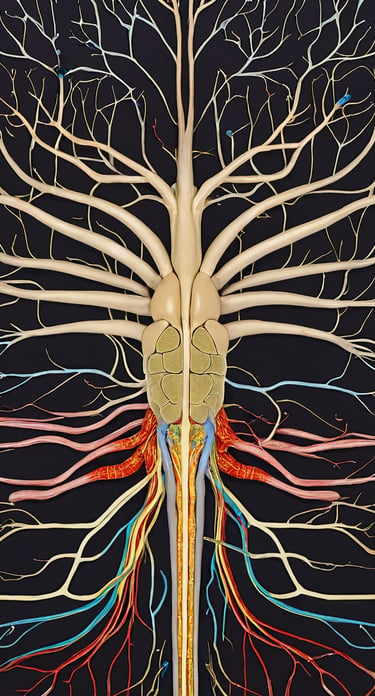


9. Breaking the Cycle: A Holistic, Sustainable Approach
Presenting a more effective solution that addresses the root causes rather than just masking symptoms.
Our Strategy are tightly regulating these simple ions as the real root cause of all
First, we try to avoid the initial cell membrane depolarization of the lipid bilayer causing an increase of these ions responsible for the next succeeding pathological reactions
Second, we regulate these ions tightly avoiding wide fluctuations
Third, we try to prevent gene mutation caused by elevation of these ions
We can stop the progression of the diseases
Do not expect a result if you do not follow our strategy. It takes disciplined The importance of nutrition, lifestyle changes, and mindset in reversing Type 2 diabetes and preventing chronic diseases are crucial for the success.


10. Why Your Current Strategy Isn’t Enough
The drawbacks of the traditional approaches and why they fail to provide lasting result are they are addressing the symptoms not the root cause of the disease
Without addressing the underlying causes, Type 2 diabetes will continue to worsen
11. How This Approach Helps You Lose Weight & Prevent Chronic Diseases
·The new method will help with weight loss, lowering blood pressure, reducing the risk of heart disease, and preventing cancer through natural way by changing lifestyle
Marites albano
I am a cancer patient stage ½ . It’s now metastasize in my lungs. I want to live longer
I glad I was able to talk to Glenn Vale for my diet plan
In conjunction with my treatment and diet plan. I think I have the chance to survive, I feel good so far and I will continue my diet plan
Thank you Glenn Vale


testimony
Aimee P. Panisal
I used to be big. I decided to follow Glenn’s diet plan and the book The Twin Devils That Sabotage Our Health, which teaches me what to eat and what not to eat. I lost 60 lbs and feel great. I do not have any chronic diseases, and I thank God for that.


testimony
RhenRen Yap
I used to be big-built, and I would eat whatever I wanted and feel great, until I developed obstructive jaundice. Now, I have decided to follow the advice in Glenn Vale's book The Twin Devils That Sabotage Our Health, and it has made a big difference.


testimony
ShIEla May martinez
I am young and feel healthy, but I am surrounded by family members with diabetes. My sister has PCOS. I want to prevent all those chronic diseases because they run in the family. I decided to follow Glenn Vale’s book The Twin Devils That Sabotage Our Health. I still feel great and am trying to maintain my weight.


testimony
12. Introducing My Book: The Twin Devils That Sabotage Our Health
The book, emphasizing how it outlines the step-by-step approach to health and wellness.
It’s a comprehensive guide for those serious about making lasting health changes.
This book will guide you how to reverse your diabetes through natural way
This can help you regulate and reveal that ions causing the trigger of initial pathologic downstream reactions
Act now, Do not wait. The disease is progressive
Maybe I am like you before, I said I feel fine but deep inside my body is slowly dying and it was too late I end-up ESRD. I don't want to happen to all of you. That is why I am sharing my experience
13. Get the E-Book Today & Take Action
Buy now—diabetes is a progressive condition. You might feel fine today, but over time, symptoms can worsen, and by then, it could be too late. Don't wait until it's too late—take action now to avoid potentially severe consequences, like the need for dialysis.
Thank
you FOR WATCHING THE presentation AND CLICK THE LINK TO PURCHASE THE BOOK
Glenn Rosaroso Vale, BSMT, MS(IT), MBA
903-268-6664
Health
Understanding illness to empower your well-being journey.
Wellness
Knowledge
info@rootcauseprevention.com
903-268-6664
© 2024. All rights reserved.
grfv@sbcgloal.net
